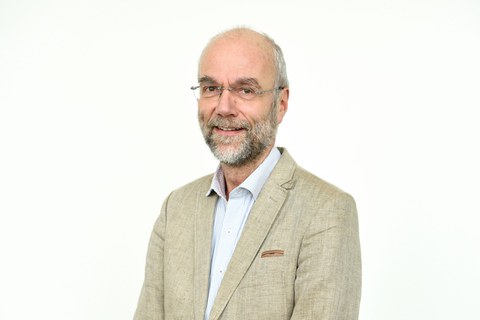Prof. Dr. med. Thomas Arendt
Research focus
- Alzheimer disease, Dementia, Neurode-generation
- Regulation of apoptosis and cell cycle
- Cytoskeleton, microtubule-associated protein tau
- Metabolism, Hypometabolism, Cryobiology and Hibernation
- Extracellular Matrix
Inhaltsverzeichnis
Curriculum Vitae
|
Arendt, Thomas Professor Dr. med. |
|
|
Official position |
Managing Director |
|
Institution |
Paul Flechsig Institute of Brain Research, Universität Leipzig, Medical Faculty |
|
Business address |
Liebigstrasse 19, D 04103 Leipzig |
Academic education and degrees
|
1990 |
Habilitation and venia legendi in Neuroscience, University of Leipzig, Germany |
|
1987 |
Medical Specialist (Biochemistry) |
|
1982 |
Medical Thesis, University of Leipzig, Germany |
|
1982 |
Graduation from Medical School, University of Leipzig |
|
1978 |
Medical Diploma, University of Leipzig, Germany |
Professional career
|
Since 1996 |
Full Professor for Neuroanatomy, University of Leipzig |
|
1987-1996 |
Research Group Leader, Paul Flechsig Inst. of Brain Research, Univ. Leipzig |
|
1986-1987 |
Wellcome Fellow, Institute of Psychiatry, University of London |
|
1984 |
Visiting scientist, Academy of Medical Sciences, Moscow |
|
1982-1986 |
PostDoc Paul Flechsig Institute of Brain Research, Dept. Neurochemistry |
|
1982 |
Scientific Assistant, Institute for Medical Microbiology, Univ. Leipzig |
Honors, awards and positions
|
2004 |
Alois Alzheimer Award of the Johann Wolfgang von Goethe University Frankfurt |
|
2003 |
Nomination for the Luigi Amaducci Award |
|
1995 |
Award of the German Brain League |
|
1986 |
Welcome Trust Fellowship |
|
1985 |
Rudolf-Virchow-Award |
|
1984 |
Award of the German Society for Experimental Medicine |
|
1976 |
Lessing Award |
Current journal editorial positions
|
current |
Managing Editorial board: Frontiers in Bioscience |
|
current |
Editorial Board: Scientific Reports; Plos one; Neuroscience; American Journal of Neurodegenerative Disease; Journal of Neural Transmission; Journal of Neurodegeneration and Regeneration; Translational Neuroscience; Neurology Discovery |
10 most important peer-reviewed papers
(10 out of: 376, SCOPUS h-index: 65)
Nitsche A, Arnold C, Ueberham U, Reiche K, Fallmann J, Hackermüller J, Horn F, Stadler PF, Arendt T. Alzheimer-related genes show accelerated evolution. Mol Psychiatry. 2020. Online ahead of print. PMID: 32203153.
Doehner W, Praße L, Wolpers J, Brückner MK, Ueberham U, Arendt T. Transgenerational transmission of an anticholinergic endophenotype with memory dysfunction. Neurobiol Aging. 2017;51:19-30.
Arendt T, Brückner MK, Lösche A. Regional mosaic genomic heterogeneity in the elderly and in Alzheimer's disease as a correlate of neuronal vulnerability. Acta Neuropathol. 2015;130(4):501-10.
Fischer HG, Morawski M, Brückner MK, Mittag A, Tarnok A, Arendt T. Changes in neuronal DNA content variation in the human brain during aging. Aging Cell. 2012;11(4):628-33.
Arendt T, Brückner MK, Mosch B, Lösche A. Selective cell death of hyperploid neurons in Alzheimer's disease. Am J Pathol. 2010;177(1):15-20.
Enard W, Gehre S, Hammerschmidt K, Hölter SM, … Arendt T et al. A humanized version of Foxp2 affects cortico-basal ganglia circuits in mice. Cell. 2009;137(5):961-71.
Mosch B, Morawski M, Mittag A, Lenz D, Tarnok A, Arendt T. Aneuploidy and DNA replication in the mormal human brain and Alzheimer´s disease. J Neurosci. 2007; 27:6859-6867.
Franz H, Ullmann C, Becker A, Ryan M, Bahn S, Arendt T, Simon M, Pääbo S, Khaitovich P. Systematic analysis of gene expression in human brains before and after death. Genome Biol. 2005;6:R112.
Arendt T, Stieler J, Strijkstra AM, Hut RA, Rüdiger J et al. Reversible PHF-like phosphorylation of tau is an adaptive process associated with neuronal plasticity in hibernating animals. J Neurosci. 2003; 18:6972-6981.
Arendt T, Allen Y, Sinden J, Schugens MM, Marchbanks RM et al. Cholinergic-rich brain transplants reverse alcohol-induced memory deficits. Nature. 1988;332:448-450.

